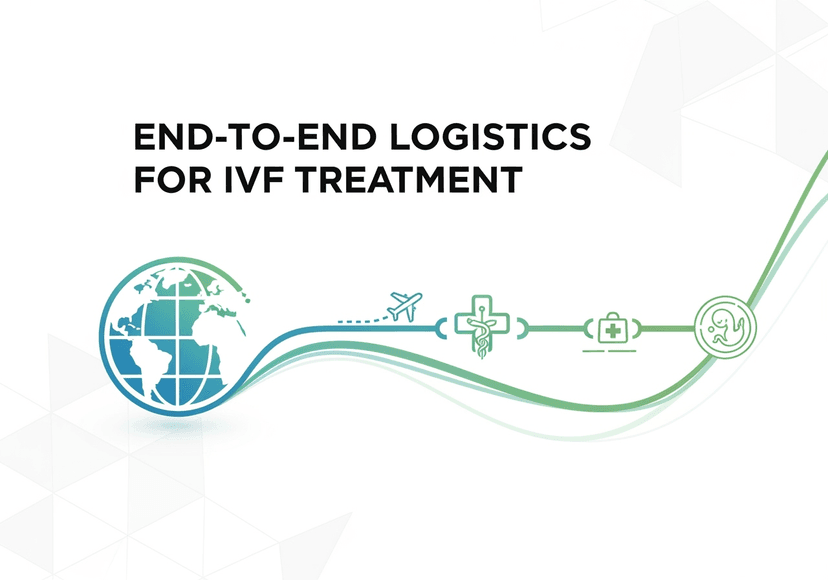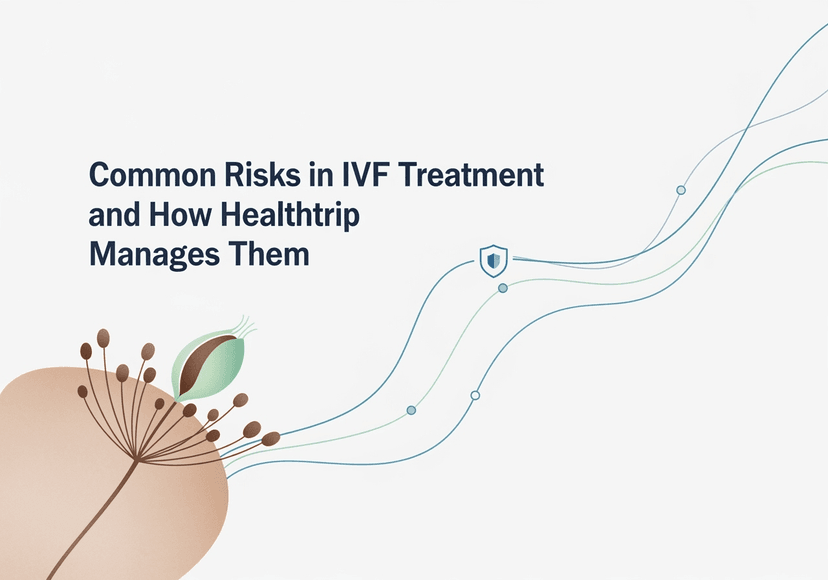
IVF Treatment and Male Infertility
10 May, 2023
Infertility is a common issue among couples worldwide, and it is estimated that approximately 10-15% of couples experience infertility. While infertility affects both men and women, male infertility is responsible for approximately 30-40% of cases. In this blog, we will explore the relationship between IVF treatment and male infertility, including the causes of male infertility, how IVF treatment can help, and the success rates and risks associated with IVF treatment for male infertility.
Causes of Male Infertility:
Most popular procedures in India
Male infertility can be caused by a variety of factors, including:
1. Low Sperm Count: A low sperm count, also known as oligospermia, is one of the most common causes of male infertility. It can be caused by a variety of factors, such as hormonal imbalances, genetic factors, infections, and exposure to toxins.
Wellness Treatments
Give yourself the time to relax
Lowest Prices Guaranteed!

Lowest Prices Guaranteed!
2. Poor Sperm Quality: Poor sperm quality can also contribute to male infertility. This can include abnormalities in sperm shape, size, or motility, which can affect the ability of sperm to fertilize an egg.
3. Erectile Dysfunction: Erectile dysfunction can also contribute to male infertility by making it difficult to achieve or maintain an erection during sexual intercourse.
4. Blockages in the Reproductive System: Blockages in the reproductive system, such as a varicocele or a blocked vas deferens, can prevent sperm from reaching the egg.
How IVF Treatment Can Help Male Infertility:
IVF treatment can be an effective option for couples experiencing male infertility. In IVF treatment, sperm and eggs are collected and fertilized in a laboratory, and the resulting embryos are then transferred to the woman's uterus. There are several techniques used in IVF treatment that can help address male infertility. These include:
1. Intracytoplasmic Sperm Injection (ICSI): ICSI is a technique used to inject a single sperm directly into an egg to increase the chances of fertilisation. This technique can be particularly helpful for couples with male factor infertility.
2. Donor Sperm: If a man has severe male infertility and cannot produce viable sperm, donor sperm can be used in IVF treatment.
3. Testicular Sperm Extraction (TESE): TESE is a surgical procedure used to extract sperm directly from the testicles in men with low sperm count or poor sperm quality.
Success Rates of IVF Treatment for Male Infertility:
The success rates of IVF treatment for male infertility can vary depending on a variety of factors, including the cause of male infertility, the age of the woman, and the number of embryos transferred.
On average, the success rates for IVF treatment for male infertility range from 30-50%, which is comparable to the success rates for couples without male factor infertility.
It is important to note that while IVF treatment can be effective for male infertility, it may not be the best option for all couples. In some cases, alternative treatments, such as intrauterine insemination (IUI) or surgery, may be more appropriate.
Risks and Considerations:
Like all medical treatments, IVF treatment carries some risks and considerations.
These can include:
1. Multiple Pregnancies: IVF treatment can increase the risk of multiple pregnancies, which can lead to complications such as preterm labour, low birth weight, and other pregnancy-related complications.
2. Ovarian Hyperstimulation Syndrome (OHSS): OHSS is a condition that can occur when the ovaries are overstimulated during IVF treatment, leading to fluid build-up and potentially serious complications.
3. Emotional Considerations: IVF treatment can be emotionally taxing for couples, particularly those struggling with infertility. It is important to have a strong support system in place and to work with professionals who can help navigate the emotional aspects of IVF treatment.
Conclusion
In conclusion, male infertility is a common issue that can be caused by a variety of factors. IVF treatment can be an effective option for couples experiencing male infertility, and there are several techniques used in IVF treatment that can help address male factor infertility.
However, it is important to note that IVF treatment is not without risks and considerations, and couples should work closely with their healthcare providers to determine if IVF treatment is the best option for them.
Additionally, it is important to address male infertility early on to improve the chances of success with IVF treatment. Men should discuss any concerns about their fertility with their healthcare providers, and both partners should be evaluated if fertility issues are suspected.
Overall, IVF treatment can be a promising option for couples struggling with male infertility, and with proper evaluation and guidance, couples can increase their chances of success and achieve their dream of having a child.
Most popular wellness packages
Related Blogs

How Healthtrip Ensures Quality & Safety in IVF Treatment Procedures
Detailed guide on ivf treatment, featuring doctors, hospitals, risks, recovery,

End-to-End Logistics for IVF Treatment with Healthtrip's Support
Detailed guide on ivf treatment, featuring doctors, hospitals, risks, recovery,

Healthtrip's Care Coordinators: Your Support During IVF Treatment
Detailed guide on ivf treatment, featuring doctors, hospitals, risks, recovery,

Top 5 Indian Hospitals for IVF Treatment
Detailed guide on ivf treatment, featuring doctors, hospitals, risks, recovery,

Post-IVF Treatment Diet and Lifestyle Tips
Detailed guide on ivf treatment, featuring doctors, hospitals, risks, recovery,

Common Risks in IVF Treatment and How Healthtrip Manages Them
Detailed guide on ivf treatment, featuring doctors, hospitals, risks, recovery,










